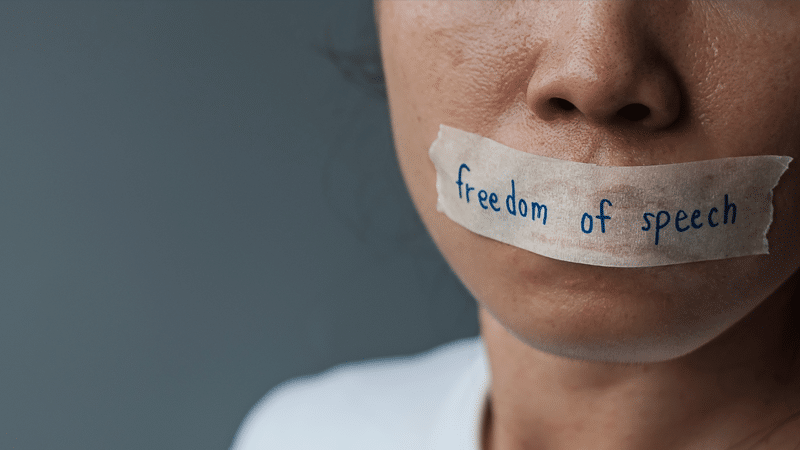Almost eight in ten university staff believe that free speech has become more restricted in the last decade, according to a new survey.
Of 452 respondents in 28 countries surveyed by Times Higher Education, 77 per cent agreed that academic freedom of speech is more limited than it was ten years ago. Only 12 per cent disagreed, with 11 per cent undecided.
The view was particularly strong in psychology and clinical health, where “sex and gender issues loom large”.
‘Transphobic’
When asked which factors most impacted their free speech, the majority (68 per cent) cited self-censorship.
The most common reason for withholding views was out of “fear of suffering professional consequences for doing so, such as being disciplined or being overlooked for a grant or a promotion”.
One UK psychologist said she is “careful about discussing issues of sex/gender around students because I don’t want to provoke an argument, and so sometimes I avoid the topic where possible. This is despite the relevance of this area in psychology”.
A female academic in Arts and Humanities said she is also “very, very careful now”, after she was branded a “transphobe” by an anonymous group of students and the university’s HR department backed the process against her.
University law
Last month, over twenty-five authors, intellectuals and celebrities called on the Government to implement a new law ensuring universities protect free speech.
In an open letter to Education Secretary Bridget Phillipson, prominent cultural figures including actor Stephen Fry, novelist Antonia Fraser and historian Tom Holland urged her to save the Higher Education (Freedom of Speech) Act.
The signatories wrote in support of more than 650 professors and lecturers from across Britain who previously told Phillipson that abandoning the Act risked silencing legitimate views on campus.

Freedom of speech is in decline in the UK, warns MP
Civil servants dragged to court over gender-critical beliefs
Professor vindicated after dismissal for criticising child gender surgery

